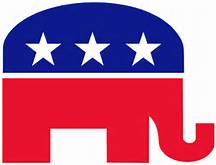The majority of the blog posts on this website are addressed to progressives and those on the political left. This is a departure. Here we will offer some thoughts to citizens who voted for Donald Trump in the 2016 election, who may be reconsidering, and who may be reluctant to admit – to themselves and/or others – that they may have been wrong. We know that Trump’s so-called “base” of supporters, somewhere between 28 and 35 percent of registered voters, will continue to stand by him. But there appear to be “stealth” voters who are weighing whether or not to vote for him in 2020; this post is for those who might need encouragement and “permission” to change their minds.
 There are many reasons that Americans across the country voted for Trump for President. These include his rhetoric, his promises, his supposed record as a very successful businessman, the image of him as “strong” and a “winner,” his actions on appointments of judges and rolling back of many federal regulations, and his stature as a “star” on television. Supporters are undoubtedly aware of the many criticisms of Trump, but they find ways in their own minds to minimize, excuse or shrug off those criticisms. They still plan to vote for Trump in the 2020 election.
There are many reasons that Americans across the country voted for Trump for President. These include his rhetoric, his promises, his supposed record as a very successful businessman, the image of him as “strong” and a “winner,” his actions on appointments of judges and rolling back of many federal regulations, and his stature as a “star” on television. Supporters are undoubtedly aware of the many criticisms of Trump, but they find ways in their own minds to minimize, excuse or shrug off those criticisms. They still plan to vote for Trump in the 2020 election.
There may be others, however, who had high hopes for Trump’s presidency and who are now having second thoughts. However, if such voters have been vocal with others about their support, they may feel quite constrained about sharing any misgivings – perhaps even embarrassed or ashamed that they voted for Trump and/or that they are now feeling disloyal to him (and to their friends and relatives who are still supportive).  Here we offer some things to consider as you move toward possible changes in your outlook and perhaps even in your future voting:
Here we offer some things to consider as you move toward possible changes in your outlook and perhaps even in your future voting:
- First, we all make mistakes, and it is a sign of maturity to admit them. Donald Trump is a real outlier in this area: from far back in his life, he has been taught, and has internalized the idea, that admitting mistakes – seen as a weakness – is a huge liability. Most of us, however, are not so constrained; most of us learn and grow from our mistakes.
- Second, if you do come around to changing your mind about Trump, you can choose whether to admit that to others or not. Our votes, obviously, are private; you are under no obligation to vote how others might want you to, or how others might think you will or should. While many voters who will desert Trump choose to announce that publicly, you are under no obligation to do so.
- Third, many voters end up regretting their choices when negative facts emerge about the chosen official, lawmaker, politician, etc. You will not be the first one to regret your choice – you are in good company. You can honestly argue that you made your choice based on the facts and evidence you had at your disposal at the time – and those facts have now changed.
- Fourth, you may want to examine why you may have voted for the Republican candidate over the Democratic one, especially if you are a voter who “always” votes Republican no matter what. Notwithstanding the very negative reputation that Hillary Clinton had in certain quarters, many voters chose Trump over her primarily because he was a Republican. What is it about Democrats or the Democratic Party or liberals (and so on) that you find distasteful?
 Are you basing your opinion on reality, prejudice, past history, family tradition? (As we have argued earlier, the two-party system itself is a problem in this country, and it is often unfortunate that we only have so few choices in our elections.) Might it be time to reconsider your long-held opinion of the “other side” of the issues?
Are you basing your opinion on reality, prejudice, past history, family tradition? (As we have argued earlier, the two-party system itself is a problem in this country, and it is often unfortunate that we only have so few choices in our elections.) Might it be time to reconsider your long-held opinion of the “other side” of the issues? - Finally, and perhaps most crucially, as we have pointed out in earlier posts (State of Confusion, Crisis Management), there is a strong likelihood that Donald Trump has a serious personality disorder. As several authors have noted, it is very important that people know the general characteristics of Anti-Social Personality Disorder – because these individuals, sometimes colloquially referred to as psychopaths or sociopaths, are around us in the general population. A significant trait of many people with APD is that they can be charming and even charismatic, and this seems to be the case with Trump. Well-known personalities such as Joe Scarborough and Mika Brzezinski of MSNBC, for instance, have known Trump for decades and experienced him as very likable and engaging in person. They are now among Trump’s harshest critics. All this is to say that Trump’s personality has won over millions of supporters – but the charming, winning and likable side of him may well be hiding an underlying hideous set of traits. In all likelihood, Trump has no conscience and no true empathy for other human beings. He also meets many of the other characteristics common to those with APD: pathological lying, grandiose (exaggeratedly high) estimation of self, lack of remorse or guilt, callousness, sexual promiscuity, and early behavior problems. It is forgivable, then, with many Americans being unfamiliar with APD, that voters might be taken in by Trump, just as many innocent people have been taken in – duped – by other psychopaths.
The bottom line is that buyer’s remorse is not uncommon when it comes to our political choices, nor should it be considered a sign of failure, stupidity, naiveté, weakness, or any other personal shortcoming to regret one’s vote and change one’s mind.  Americans who voted for Trump in 2016 who may be having second thoughts should give themselves full permission to re-examine the evidence and, possibly, make a different decision in the 2020 election.
Americans who voted for Trump in 2016 who may be having second thoughts should give themselves full permission to re-examine the evidence and, possibly, make a different decision in the 2020 election.
Resources
Ablow, Keith. Inside the Mind of Scott Peterson. New York: St. Martin’s Paperbacks, 2005.
Hare, Robert D. Without Conscience: The Disturbing World of the Psychopaths among Us. New York: Simon and Schuster, Inc., 1993.
Stout, Martha. The Sociopath Next Door. New York: Broadway Books, 2005.
